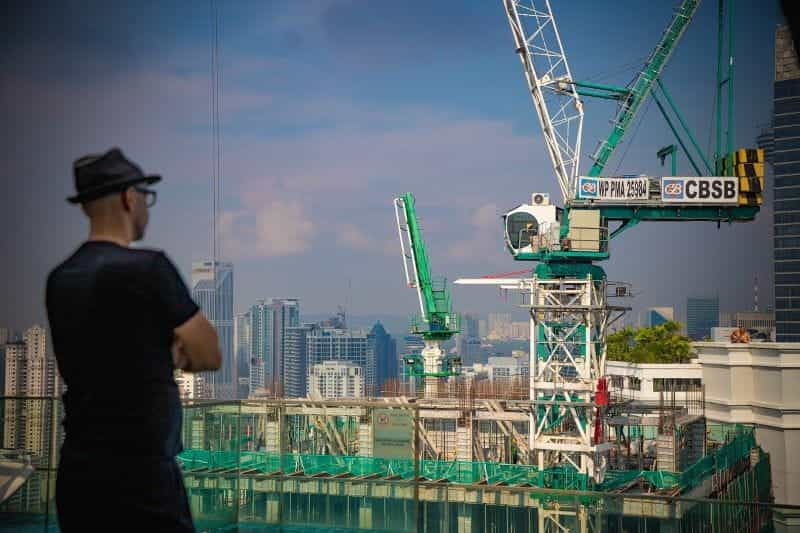The Rise of Laos’s New Gambling City
Boten on the Laos-China border is going through a major transitional period, and looks set to transform from a village of just a few hundred inhabitants into a newly developed casino hub for the region. Fueled by an enormous influx of Chinese capital investment, the surrounding area has become an enormous construction site as developers set to work implementing their ambitious plans for the town.

The city of Boten on the Laos-China border has been in transitionary period for nearly two-decades, with cash flows volatile and corruption rife, there have been serious questions whether the casino city would ever come to fruition – it does now seem things are nearing completion. ©Peggy_Marco/Pixabay
A typical morning in the Boten suburbs is a misty cold and damp one. In this time when one visits the town, these low visibility conditions may mask the extent of the building operation going on in the small town. With a large population of construction workers toiling around the clock, things are progressing quickly. Businessmen patrolling the building sites claim that one day very soon over 300,000 people will live here, with top-quality infrastructure, all funded by a newly developed range of casino complexes.
The town is in a very transitionary period right now, most of the inhabitants have only just descended on its lands. Coming from all over the Asian peninsula in search of commercial opportunities, many of the incumbents have had to adapt and overcome significant economic challenges in light of the COVID pandemic.
Strategically positioned on the border it will become a gateway for Chinese wealth into the Southeast Asia and Laos region. Also, an important factor within this dynamic is the obscurity of China’s capital balance laws, which can be easily circumvented when the casinos sit just on the border. Up until now junket operators like SunCity are needed to transport Chinese money offshore to use in foreign casinos. Boten solves these two problems and looks set to boom as a result.
Boten Aims to Attract Chinese and Thai Gamblers
Since the early 1990s, the town of Boten which is located on the Luang Namtha peninsula in the northern part of Laos has served as the primary border crossing between the small nation and its enormous neighbor, China. In 2003 there was a sudden surge in interest around the small town as a result of the Chinese government designating the area a Special Economic Zone (SEZ). Almost immediately a Chinese developer won a lease agreement from the local authorities and put forward its plans to invest over $600 million in construction and development initiatives for the surrounding region.
In typical Chinese authoritarian fashion, in order to make way for the newly designated Special Economic Zone, the original inhabitants of Boten were transported 20 kilometers down the road to a new village created for them, aptly named New Boten. With the villagers out the way, casino moguls and large Chinese developers wasted no time in their aggressive construction schedule. The new town which was named Boten Golden City featured plans to develop a large range of casinos, hotels, and other leisure services; it also runs on Beijing time and allows for seamless travel from the mainland.
Unfortunately, the lofty plans stalled at the beginning, and deep social issues began to emerge, swathes of violence, and several murders drew a bad reputation for the city that found itself knee-deep in corruption at its height in 2011. In a crackdown attempt, the local Laos government took a strong stance and shut down all the casinos in the city in an effort to clean out the nefarious actors operating in the region. Subsequently, the investors who originally funded the city fled and Boten entered a period of immense volatility and economic depression.
One year later in 2012, it seemed like fortunes were again on the rise in Boten. The Belt and Road Initiative ignited a fresh round of interest in the city as a Laos-China railway was outlined, and investors started to pour money into local projects once again. With Boten touted to have a dedicated railway station on this newly developed railway line, it became clear this city would be destined for economic and logistical prosperity.
City Planners Tout Up to $10 billion Investment
Boten Golden City has a long way to go until all of these ambitious plans will be brought to fruition. One particular Chinese developer has already made clear it has a $10 billion endowment to further construction initiatives in the city. In an epic re-fit from the original build, construction will need to be precise and of high quality. Investors and developers alike reckon there’ll be 350,000 living in the city by 2035.
Idealists and visionaries have built models of what the town will look like when complete, these are proudly displayed at reception areas around the half-finished town. It will be a modern and cosmopolitan city when complete and is now attempting to diversify its revenue dependencies on the casino industry by building a large range of shopping malls and other casino-free businesses. On the outskirts, there are already plans to re-develop parts of the original town into authentic Laos-village-style homes that will attract Chinese tourists interested in such an experience.
Whilst the developments in the town of Boten will provide a boost of economic growth to a once destitute region, there are questions arising over how these will impact the social and economic status of local Lao people. Friction already exists between the Chinese business elite, managers, and construction supervisors, who are said to treat the Lao workers harshly and impolitely. Most of the local businesses are owned by Chinese and it seems the Lao locals have few opportunities to break this rigid hierarchy.



